Email
info@lgsc.co.uk
Email
info@lgsc.co.uk
Phone
0203 312 6130
Location
The Lindo Wing, St Mary’s Hospital,
Praed Street, London W2 1NY

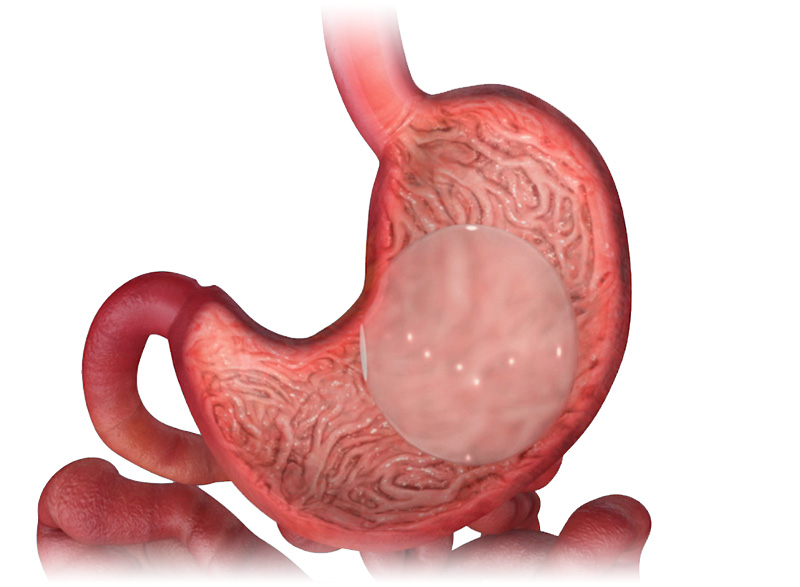
An intra-gastric balloon procedure is carried out without making an incision on your abdomen. Instead, the balloon is passed through your mouth and down into your stomach using an endoscope (a thin, flexible tube that has a light and a camera on one end).
This is an endoscopically placed soft silicone balloon that is placed into the stomach via the mouth. This is then filled with sterile fluid. This takes up space and means that you feel full and so eat less.
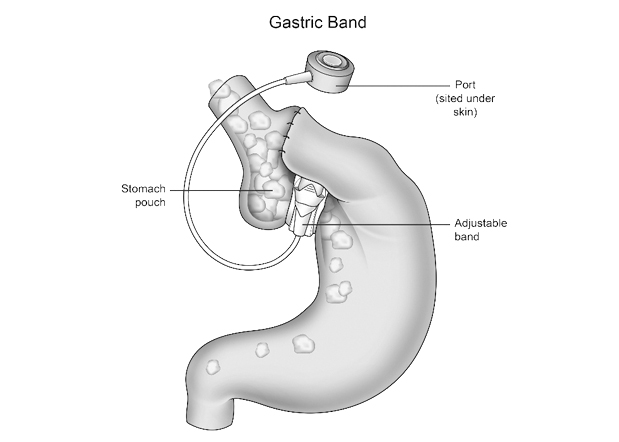
A gastric band is an inflatable silicone ring which can be used to control the amount of food passing from the stomach into the digestive tract.
The operation is done as a laparoscopic (‘keyhole’ surgery) procedure while you sleep under a general anaesthetic.
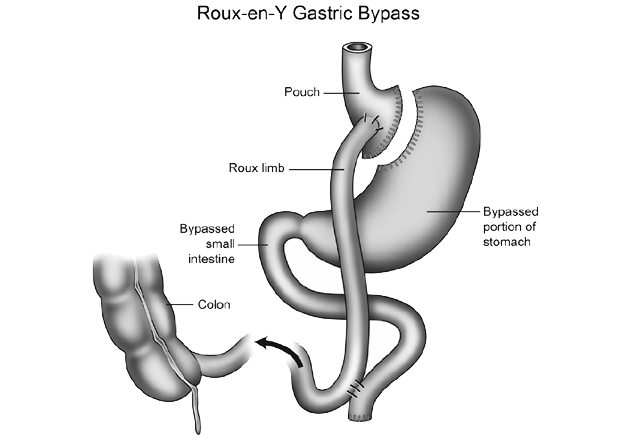
The operation is done as a laparoscopic (‘keyhole’ surgery) procedure while you sleep under a general anaesthetic.
This is an operation where some of the stomach and part of the small intestines are bypassed. The stomach is stapled to leave a smaller pouch and then a section of the small intestine is attached (usually by staples) to the small stomach pouch that has been created.
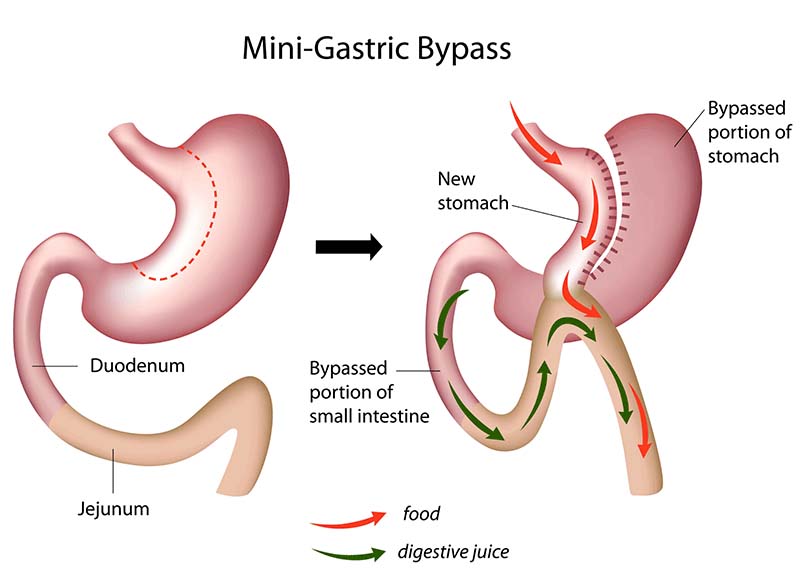
The operation is done as ‘keyhole’ surgery while you are under a general anaesthetic.
This is an operation where some of the stomach and part of the small intestines are bypassed. The stomach is stapled to leave a smaller pouch and then a section of the small intestine is attached (usually by staples) to the stomach pouch that has been created (see picture).
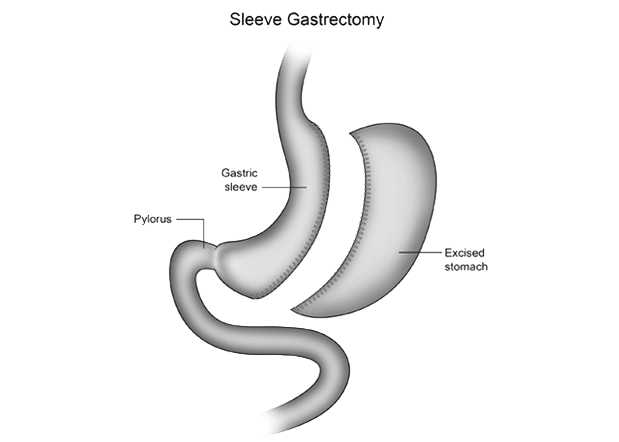
Unlike a gastric bypass where food enters a small pouch and then passes straight into the small bowel, the route that food takes following a sleeve gastrectomy is the same as it took before surgery.
This operation involves converting the stomach into a long, thin tube by stapling it along its length and excising (removing) the excess stomach.

For patients that may have had bariatric surgery in other centres or many years ago when the newer procedures and techniques were not available they may chose to have further procedures to:
Many patients have previously had open surgery many years ago when laparoscopic surgery was not available. Patients such as this can still have laparoscopic surgery to revise their previous procedures as our team is highly skilled at managing such cases.

We are pioneers in obesity treatment and have developed a specialist tier 3 multi-disciplinary weight management programme prior to surgery if this a more favourable pathway for you, where you will be assessed by our experienced bariatric physician, psychiatrist, dietician and exercise therapist.
Our medical assessment will look for and treat obesity related conditions such as diabetes, sleep apnoea, hypertension, cardiac problems, high cholesterol, fatty liver disease, joint pain and reduced mobility.
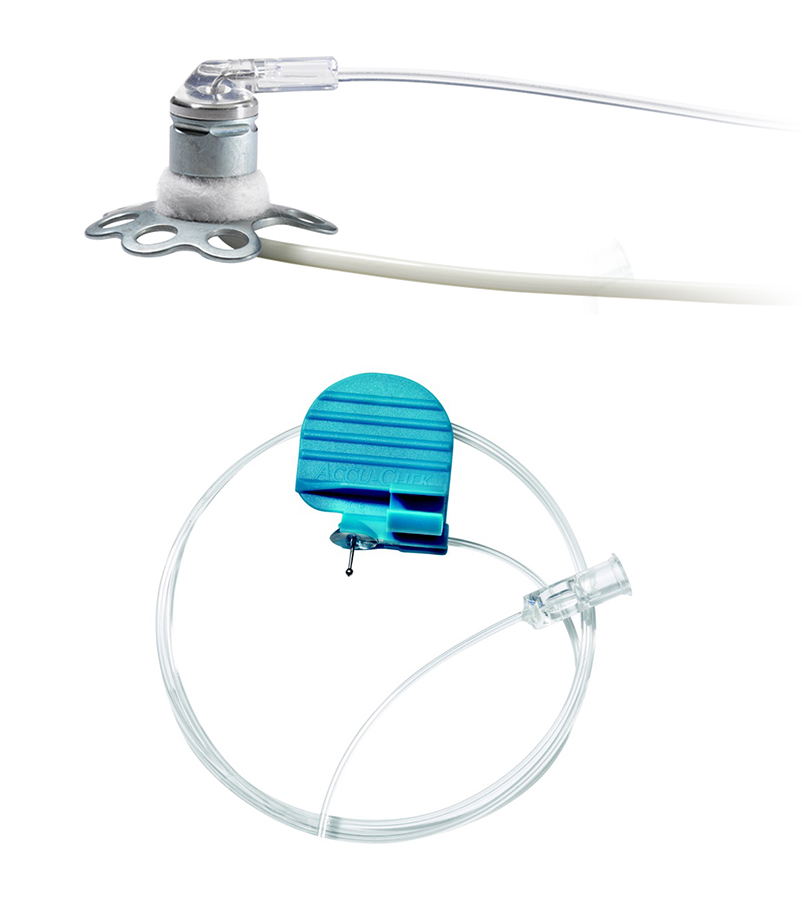
For all diabetes patients whether they are having surgery to improve their diabetes or another procedure not related to diabetes e.g. a hernia repair, our team will work in close conjunction with your own diabetologist or diabetes nurse specialist alongside our diabetes physician. This allows the best blood sugar control around the time of the procedures so that your safety is never compromised from this perspective.
Type 2 diabetes is often associated with weight. Bariatric surgery procedures have been shown to help with better control of type 2 diabetes and in randomized trials surgery has shown to give better results than the best medical (non surgical treatment) with regards to blood sugar control and reduction in diabetes medications.
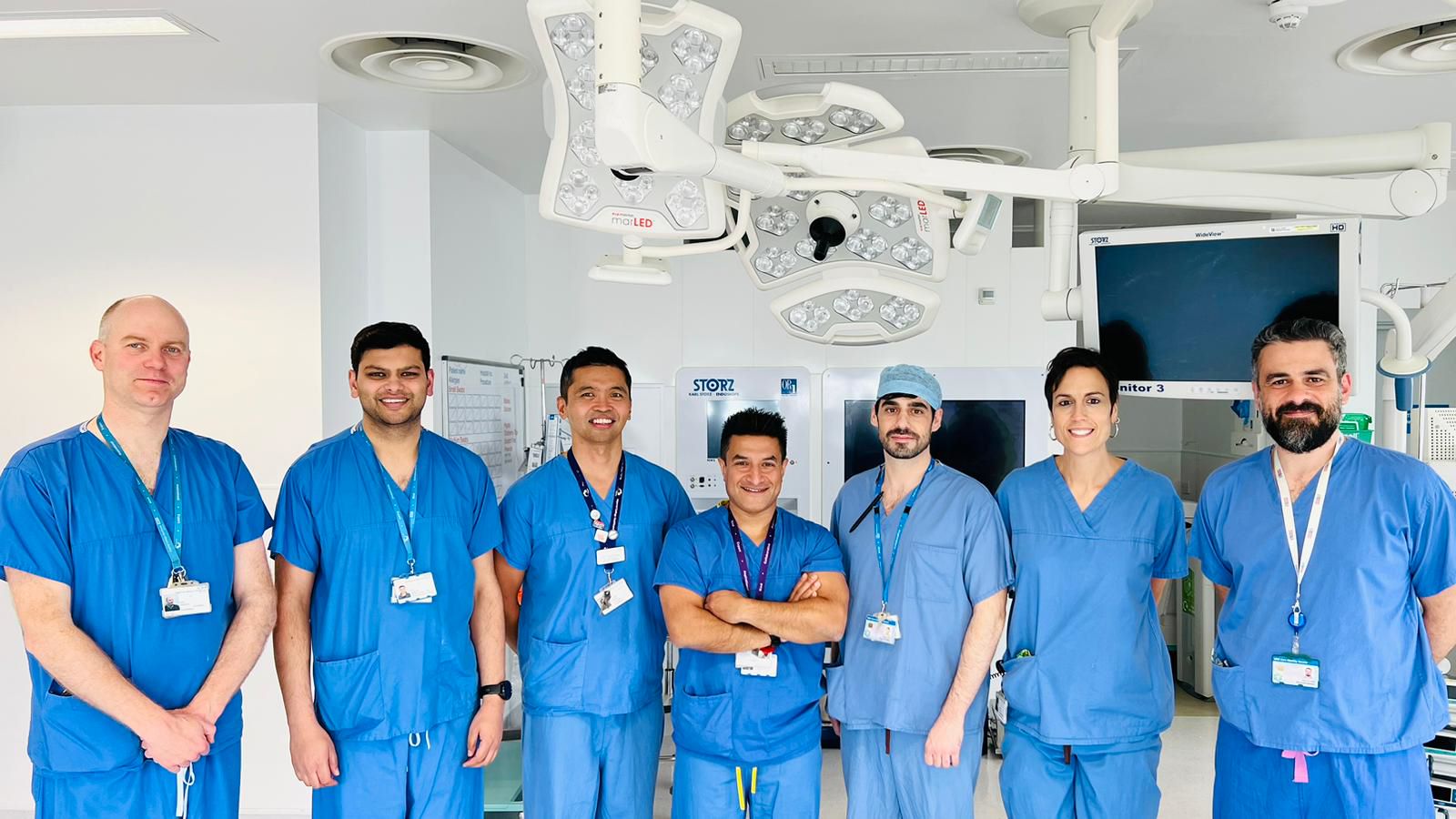
If you have already seen a surgeon or team and would like a second opinion please contact us for an appointment. For such cases you should ideally let the first clinician / team know that you are coming to see us for a second opinion. For the best and speediest outcomes in such cases please could you send us your previous test results, medical reports and X-rays/CT scans etc prior to your appointment.
For patients who may be admitted abroad and wish a second opinion from Professor Purkayastha and his team please let us know and we can arrange a virtual consultation on line and even at your bedside via skype, facetime, viber or tango.
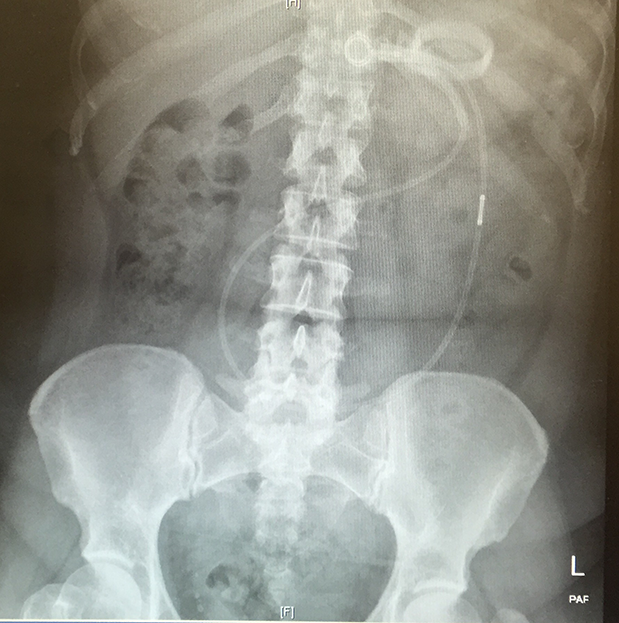
If you have had a gastric band inserted previously by another team and are struggling with it or have any complications please do get in touch. Our team has huge experience in sorting out many different types of band problems including a slipped band, tubing problems, flipped ports, eroded bands and gastric bands that are no longer helping to keep your weight down.
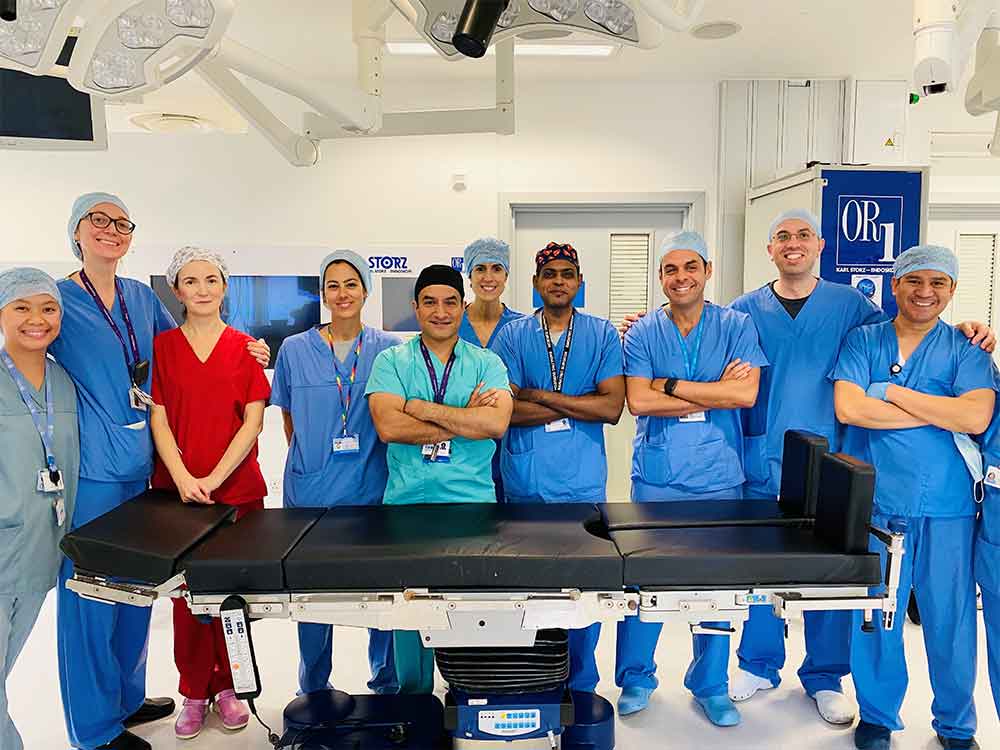
Bariatric surgery is carried out by by many surgeons and teams. For the nest outcomes it is important to have the best, safest care.
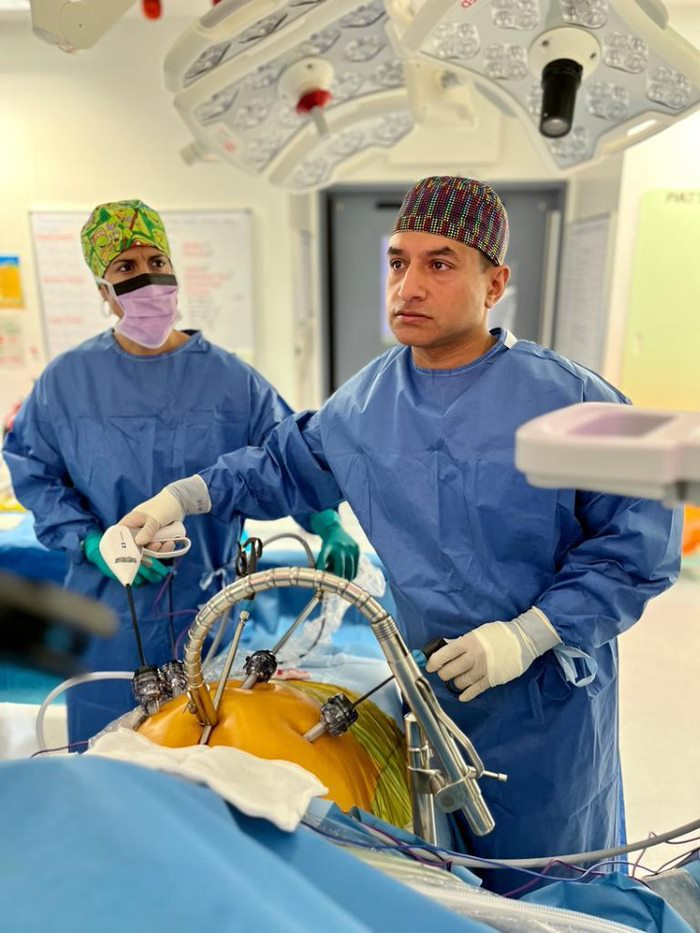
Bsc MBBS MD FRCS
Laparoscopic, General, Gastrointestinal and Bariatric SurgeonBsc MBBS MD FRCS
Laparoscopic, General, Gastrointestinal and Bariatric SurgeonGeneral & gastroenterological surgery
Bariatric / weight loss surgery
Emergency abdominal conditions / surgery
General Surgery, Laparoscopic Surgery, Bariatric Surgery, Upper GI Surgery, Trauma Surgery.
Sanjay Purkayastha is a Consultant General Surgeon with a specialist interest in Bariatric & Upper GI Surgery. He was also an associate professor at Imperial College London. He is currently an honorary professor at Brunel University.
Professor Purkayastha trained at Saint Mary's hospital and medical school, Imperial College London, the London deanery, and the Royal College of Surgeons England. During his training he also spent time at Cook County Hospital, the Cleveland Clinic and the Mayo Clinic in the USA.




Please note, most insurance policies in the UK do not cover weight-loss surgery. However, we will do our utmost to provide the best package for you should you choose to have your surgery with us.
The contents on this site is for information only, and is not meant to substitute the advice of your own physician or other medical professional.